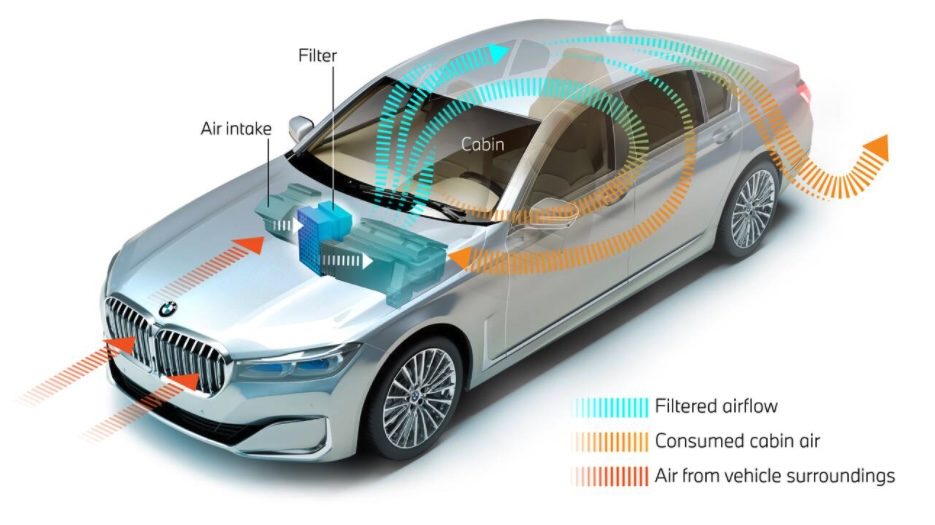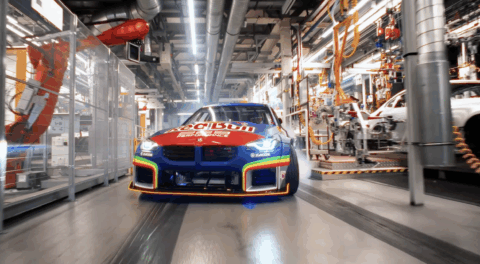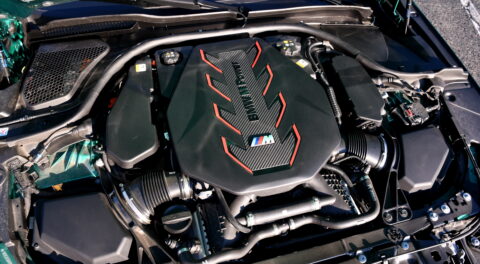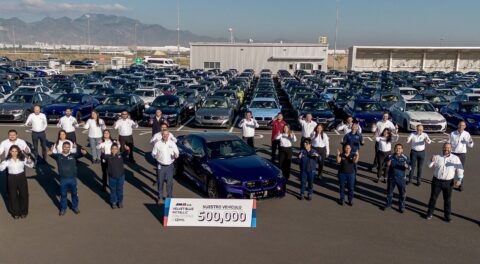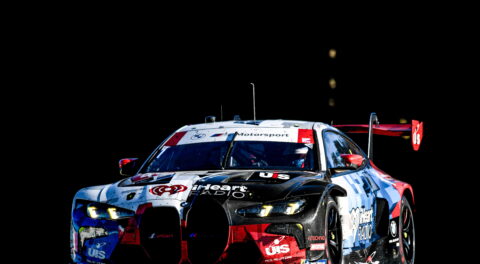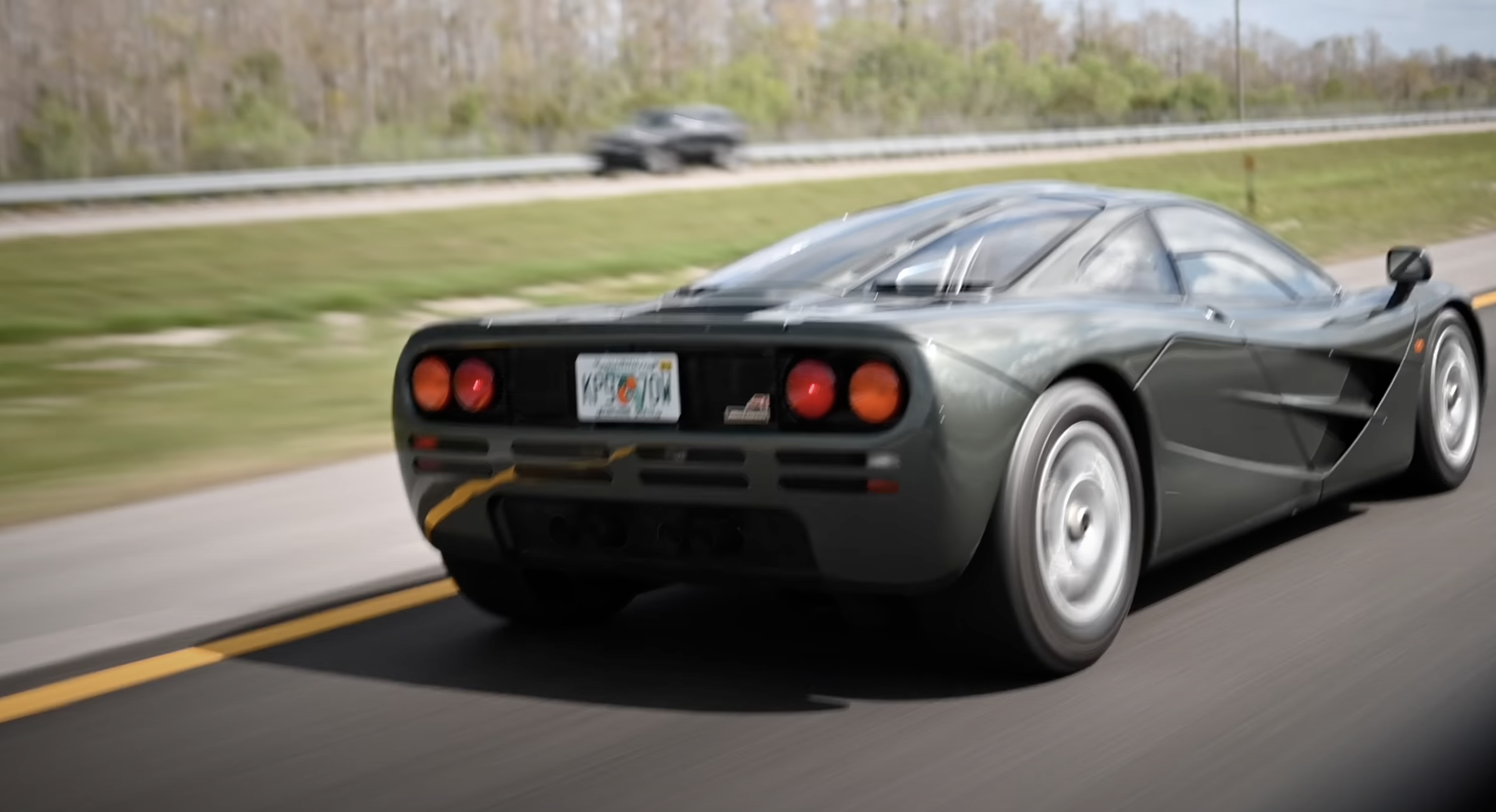BMW is improving upon a piece of equipment that has long been standard in the brand’s vehicles. Cabin-air filters were once exclusive to only the upper reaches of vehicle model ranges, but have permeated lineups over the preceding decades to become a nearly ubiquitous feature. These days, they come standard in what seems like a majority of vehicles currently on sale, and some luxury manufacturers have touted their systems as being able to filter out the allergens that unfortunately irritate so many of us. Any discussion of cabin-air filtration would also be remiss without mentioning Tesla, which touts its bioweapon defense mode.
While Tesla’s systems rely on HEPA (High-Efficiency Particulate Air) filters, which are widely available in the aftermarket from a variety of original equipment manufacturers such as Bosch, BMW is expanding the availability of so-called nano-particle cabin-air filters within its lineup. Unveiled in the Fall 2020, the filters use what’s referred to as nano-fleece made of nano-fiber sitting on top of a traditional activated carbon layer. The filters are only available with optional four-zone climate control, and initially came standard on X7 and were offered as an option on the 7 Series and 8 Series, along with the X5 and X6, and all of their respective M derivatives.
Although HEPA filters can remove particles as small as 0.3 micron from the air, BMW’s nano-particle design takes things to another level, capturing particles as small 100 nanometers in size, or 0.1 micron. BMW says its nano-particle filters can strain 40% more harmful particles from the air than current mainstream filter technologies, including carbon monoxide and nitrogen oxide, bacterial microbes, allergies, soot, emissions particulate, and ultra-fine dust.
“BMW has been working actively on state-of-the-art filter systems since the early nineties,” says Dr. Christian Rosskopf, an expert at the BMW Group. “However, the development we have seen in recent years, including and perhaps in particular, those we see in the fight against urban pollution, has meant that we have sped up the introduction of our latest filter technologies.”
BMW introduced combination filters, which marry activated carbon with traditional air particulate filtration into a single unit, in 1998. As air quality declined and become a regional issue in Asia, BMW responded by making fine-dust filters standard equipment in China in 2015, and in South Korea starting in 2020. Fine-dust filters were also made optionally available for all BMW markets the same year.
Four-zone climate control with nano-particle filters will soon be optionally available for the BMW 5 Series and M5. The system also includes an air flush mode, which cleanses most of the cabin air in a matter of minutes. Cabin air can be exchanged manually, or as part of pre-drive conditioning in the BMW ConnectedDrive app.—Alex Tock
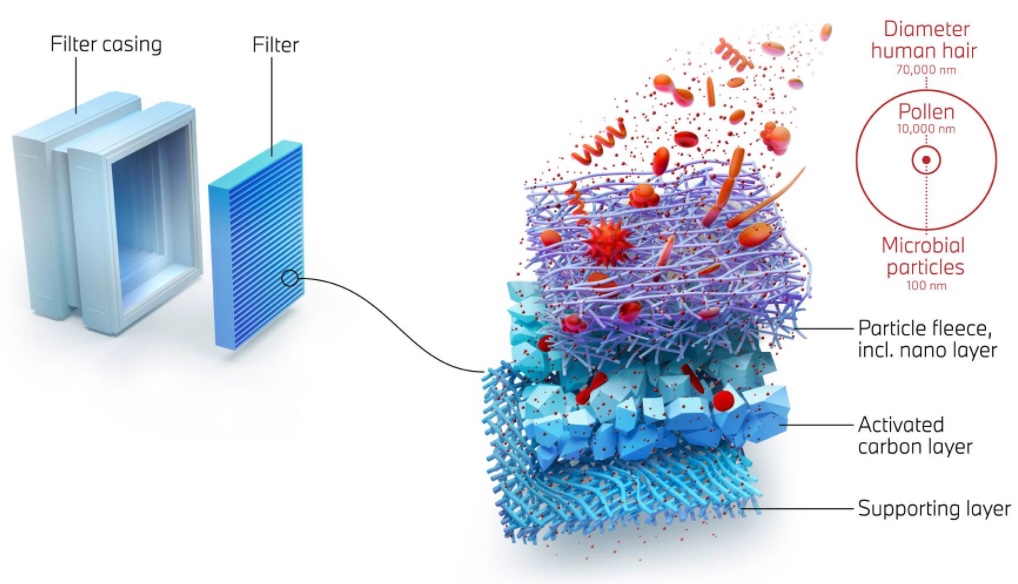
[Images courtesy BMW AG.]

